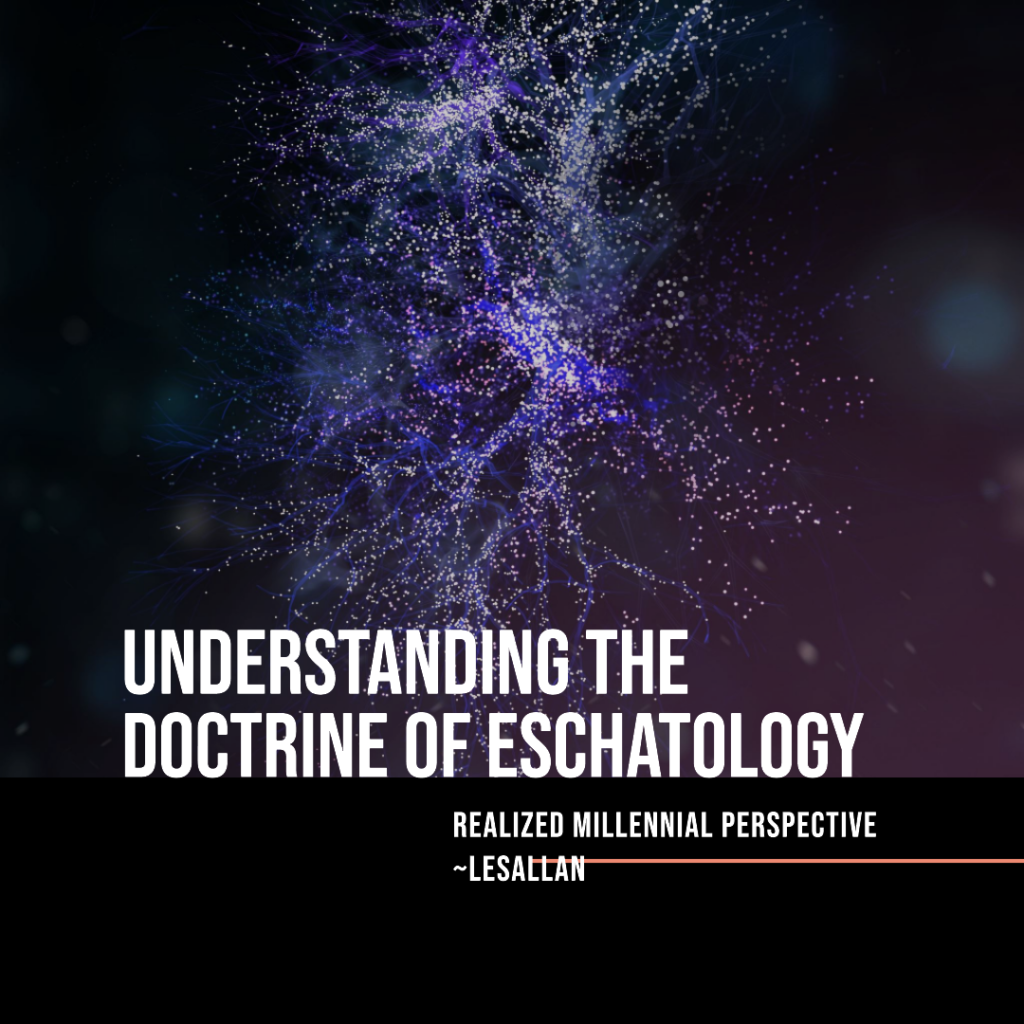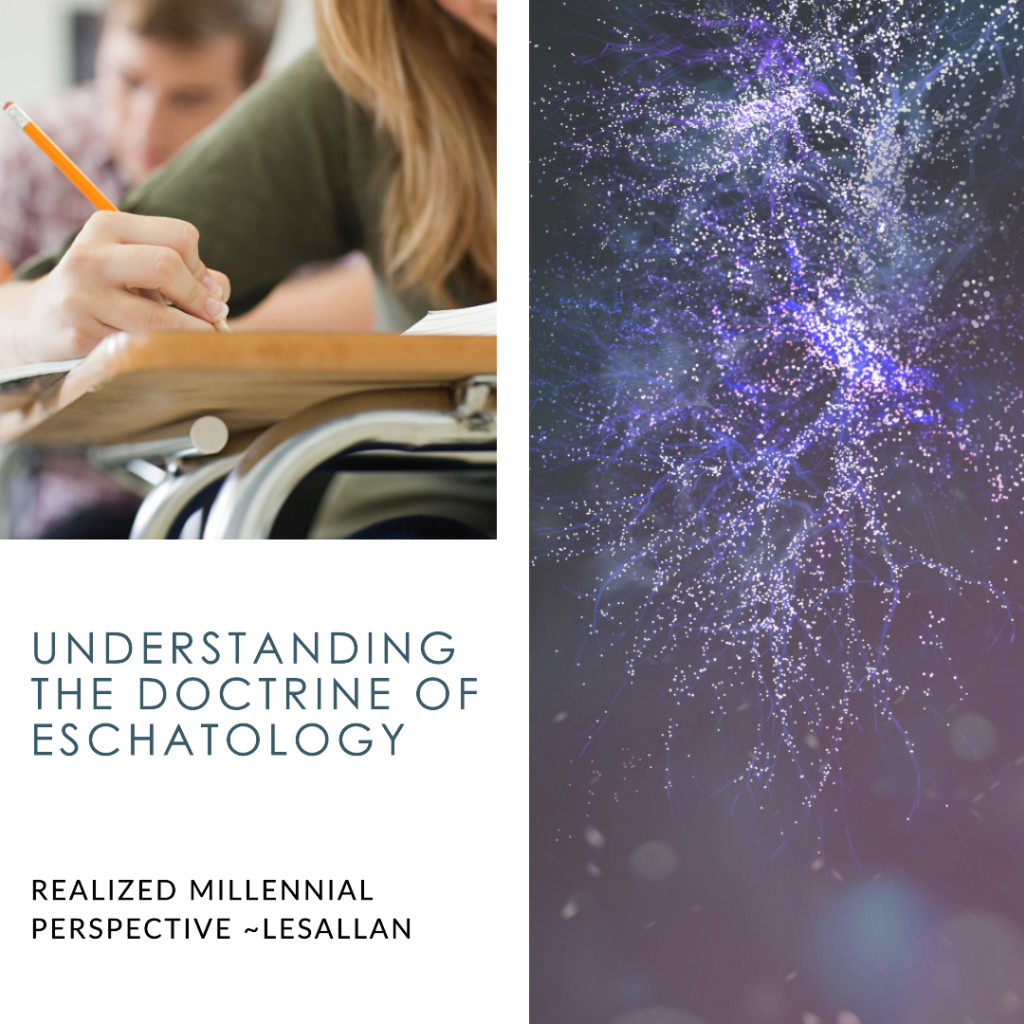
Doctrine of Eschatology – Realized Millennial
Lesallan Bostron
Ohio Christian University
THE4050 Investigating Christian Theology II (ONLF23)
Professor Jeremy Kamer
October 30, 2023
Doctrine of Eschatology – Realized Millennial
This paper is written on the realized millennial view of eschatology, also known as amillennialism. This doctrinal view holds that the millennium, or the thousand-year reign of Christ, is not a literal future event but a symbolic description of the present age, in which Christ reigns in heaven and through His church on earth (Oden, 2009, p. 823). According to this view, the second coming of Christ will not be preceded by a tribulation or a rapture but will coincide with the final judgment and the resurrection of the dead (Hoekema, 1994, p. 175).
The realized millennial view has some positive theological implications. For one, it avoids the problem of interpreting the book of Revelation, which can lead to confusion and speculation. It also affirms God’s sovereignty and Christ’s victory over sin, death, and Satan in His first coming (Riddlebarger, 2003, p. 25). It emphasizes the spiritual nature of the kingdom of God and the church’s role as its witness (Oden, 2009, p. 825). It also encourages Christians to live in hope and anticipation of Christ’s return without setting dates or looking for signs (Hoekema, 1994, p. 179).
However, this view also has some negative theological implications. For one, it can be seen as downplaying the future aspect of eschatology and the promises of God for His people and His creation (Riddlebarger, 2003, p. 27). It can also be accused of spiritualizing or allegorizing the Biblical texts that speak of a literal millennium, such as Revelation 20 and Isaiah 65 (Hoekema, 1994, p. 176). It can also be challenged by the historical evidence of evil and suffering in the world, which contradicts the idea that Christ is reigning now (Oden, 2009, p. 826). It can also be criticized for neglecting the role of Israel and the Jews in God’s plan (Riddlebarger, 2003, p. 28).
The realized millennial view has some practical implications for how people live now. On the one hand, it can inspire Christians to be faithful and diligent in their service to God and His church, knowing that they are participating in His kingdom now (Oden, 2009, p. 827). It can also motivate them to seek justice and peace in the world, as they reflect God’s character and will (Hoekema, 1994, p. 180). On the other hand, it can also make Christians complacent or indifferent to the future, as they focus on the present (Riddlebarger, 2003, p. 29). It can also make them passive or pessimistic about the world, as they see it as doomed or irrelevant (Oden, 2009, p. 828).
The realized millennial view is believed to provide the best understanding of the Biblical data because it considers both the continuity and discontinuity between the Old and New Testaments. It recognizes that Christ fulfilled the prophecies and promises of the Old Testament in His first coming and that He will consummate them in His second coming (Oden, 2009, p. 829). It acknowledges that Christ established his kingdom in His death and resurrection and will manifest it in His glory and power (Hoekema, 1994, p. 181). It respects the literal and symbolic aspects of Biblical language without forcing one over the other (Riddlebarger, 2003, p. 30).
References:
Hoekema, A. A. (1994). The Bible and the Future. Grand Rapids: Eerdmans.
Oden, T. C. (2009). Classic Christianity: A Systematic Theology. New York: HarperOne.
Riddlebarger, K. (2003). A Case for Amillennialism: Understanding the End Times.
Grand Rapids: Baker Books.



